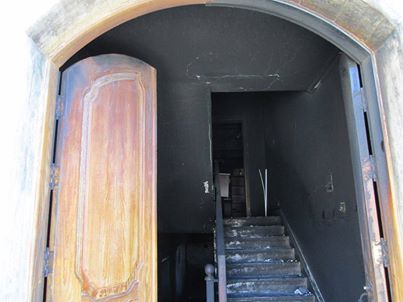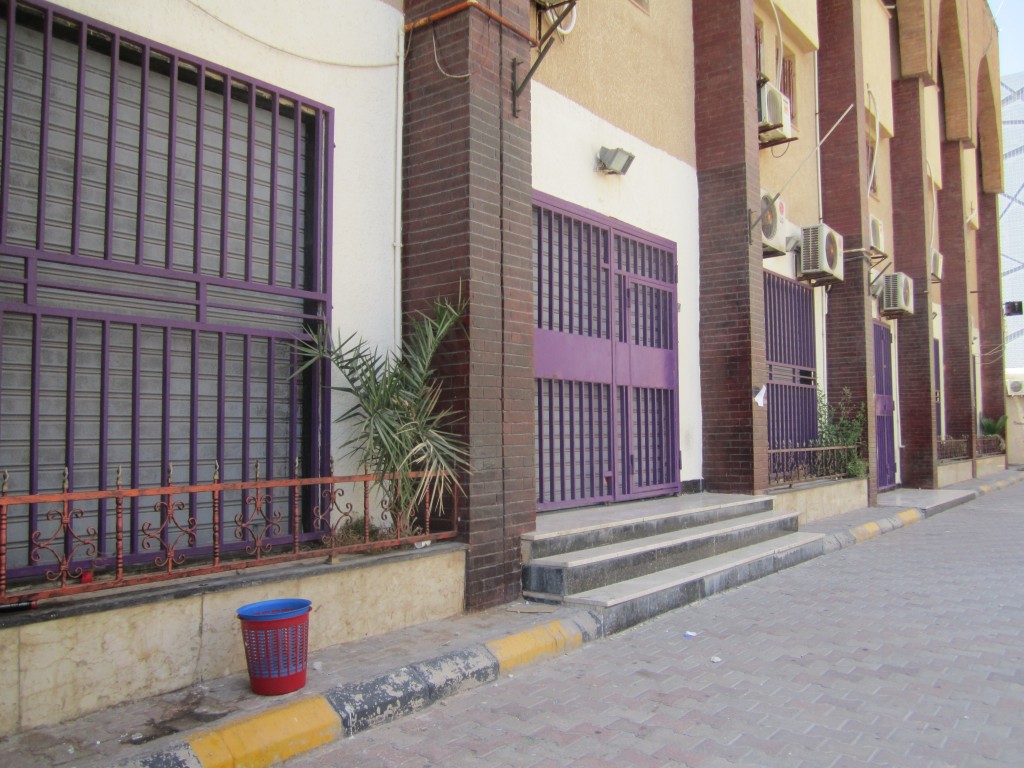http://www.aljazeera.com/news/middleeast/2013/07/2013731144419285305.html
Egypt cabinet orders end to sit-in protest | ||||||||||||||||||||||
Interim government says it will take all measures to deal with unrest from rallies in support of ousted president Morsi.
Last Modified: 31 Jul 2013 21:56
| ||||||||||||||||||||||

Egypt's cabinet has tasked police to take "all necessary measures" to end protests by supporters of ousted president Mohamed Morsi, warning that their demonstrations pose a national security threat.
"The continuation of the dangerous situation in Rabaa al-Adawiya and Nahda squares, and consequent terrorism and road blockages are no longer acceptable given the threat to national security," it said in a statement on Wednesday.
Following the announcement, the US state department urged Egypt to respect the right of peaceful assembly.
Morsi's supporters have been camped out in both squares demanding his reinstatement.
"The government has decided to take all necessary measures to confront and end these dangers, and tasks the interior minister to do all that is necessary in this regard, in accordance with the constitution and law," the statement read.
Al Jazeera’s Dorothy Parvaz, reporting from Cairo, said the statement from the government did not deter the protesters.
“Despite the Cabinet decision to clear the sit-ins, a steady stream of people is pouring into the already crowded Rabaa vigil in Nasr City."
Amnesty International said the government's decision to mandate security forces to end the pro-Morsi rallies is a "recipe for further bloodshed".
http://www.aljazeera.com/news/middleeast/2013/07/2013731194246403597.html
Al-Watan Party headquarters set alight
By Ashraf Abdul Wahab.
Tripoli, 31 July 2013:
The headquarters of the Al-Watan Party in Tripoli’s Hay Andalus district was set alight on Monday.
After setting fire to the building, the perpetrators then fled the scene, apparently firing guns into the air to prevent anyone giving chase.
No-one was injured but several parts of the building were destroyed in the blaze.
This was the second attack on the building in as many days. Two days before the fire, the headquarters was targeted with an RPG, although this caused little damage.
During last weekend’s protests a number of headquarters of political partieswere also attacked.
|
Libyana store closed after drive-by shooting
Tripoli, 30 July 2013:
A Libyana store close to Tripoli’s Omar Mukhtar Street remained closed today after two people were injured in a drive-by shooting.
The attack, which took place on Sunday, was apparently targeting a specific customer who was inside the store at the time, according to Al-Watan newspaper. It is not known whether one of injured was the intended victim.
The shots were reportedly fired from a white Hyundai car with no number plates. The perpetrators have not yet been identified but an investigation into the attack has been launched.
Today the store’s shutters were down, with a sign taped to the front of the premises saying that it was closed until further notice.
Fresh Iraq Attacks Leave 33 Dead, 73 Wounded
by Margaret Griffis, July 30, 2013
At least 33 people were killed, and 73 more were wounded in the latest violence. Although there were many attacks, they did not seem coordinated.
In Baghdad, a bomb near a Furat grocery store left one person dead and one injured. Six people were wounded in a blast in Jamiaa. An I.E.D. in Sabaa al-Bourwounded four people. At least six more people were killed in these or other attacks. Police arrested a suicide bomber as he tried to enter a government building.
A bomb near a mosque killed four worshippers and wounded at least 11 more in Tuz Khormato.
In Mualamin, a bomb targeting young men at a popular shop killed five of them and wounded 16 more when it exploded.
Three policemen were killed and a fourth one was kidnapped when gunmen attacked a checkpoint in al-Hafriya; two more policemen were wounded.
In Kut, two policemen were shot to death. Gunmen also killed one civilian and wounded three more.
Gunmen killed three policemen at a checkpoint in Mosul. A civilian was killed and three others were wounded in a bombing. A roadside bomb wounded four soldiers.
In Kirkuk, a sticky bomb killed one policeman and wounded another. Another sticky bomb wounded a policeman north of town. A civilian was also killed and three more were wounded in two more blasts.
A suicide car bomber attacked a checkpoint leading to Saddam’s presidential palace inTikrit, where he wounded nine policemen. The compound is now used for government and security office space.
A small arms attack in Essouira left one policeman dead.
Police liberated eight people from their kidnappers in Samarra. Before returning to their homes, the eight victims were treated at hospital.
In Falluja, gunmen killed a civilian. A sticky bomb wounded a civilian. Two shop owners were shot dead separately.
Two abducted children were liberated in Sadr City.












No comments:
Post a Comment